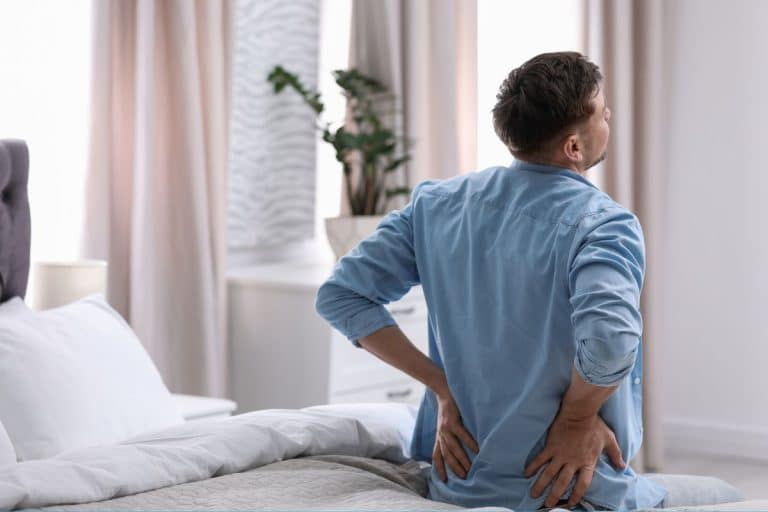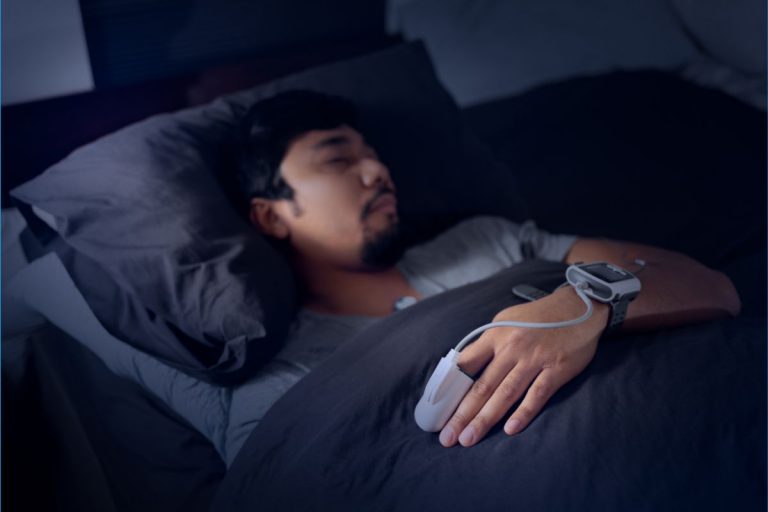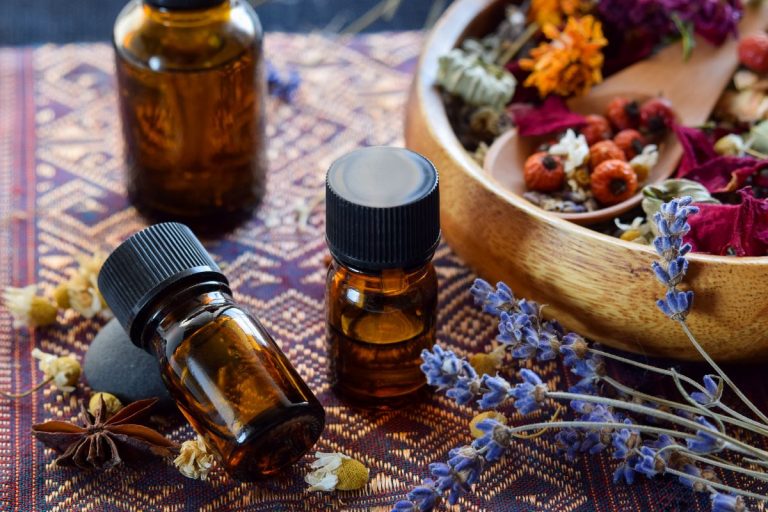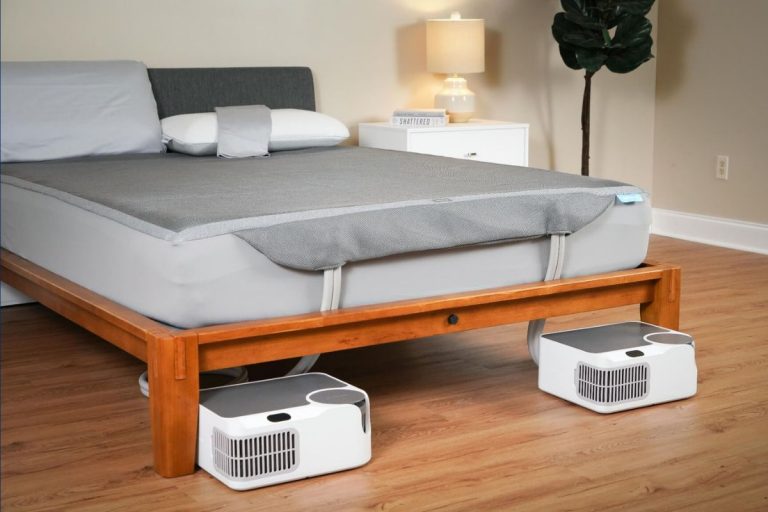Let’s get something right out of the way; when you’re tired, exhausted and you don’t sleep well, all you want to do is hit the bed for a whole day. Too bad no one can really do that because of, well, life.
We have to go to work (at least those who are essential workers nowadays) or wake up to work from home, go to school or attend an online class, take care of the kids, and so much more.
So, the cycle repeats and we are constantly sleepy and tired.
But, one day during the weekend you decide to go to bed and snooze for a good 7 or 8 hours. However, because you’re lacking sleep already, you oversleep. It is 10 hours later and you’re waking up feeling groggy and hungover.
Terrible feeling. It’s like someone beat you up after you got heavily drunk. But, all you did was sleep, a little more than you thought you would.
So, what do you do to get yourself back on track?
In the following paragraphs, we’ll share some tips and tricks on how to get rid of the terrible grogginess from oversleeping. So, without further ado, let’s get into it!
Oversleeping: Explained
Why Do We Oversleep?
Adults are required to get a good night’s sleep every night in order to function properly the next day. The required amount of sleep for adults is anywhere between 7 and 9 hours, depending on one’s needs. Seniors are required to sleep around 7 hours, while children can enjoy a good night’s sleep between 10 and 13 hours.
But, why do we oversleep? Isn’t our brain wired to know when we’ve had enough of sleeping and are ready to wake up?
Now, oversleeping, also known as hypersomnia, affects a small percentage of people on a regular basis. However, the majority of us oversleep from time to time.
To oversleep means to require as many as 10 to 12 hours of sleep per night to function properly the next day. It is not uncommon for hypersomniacs to sleep even up to 15 hours per night. Some of the main causes of oversleeping include;
- Sleep apnea and the use of CPAP
- Cardiovascular disease
- Narcolepsy
- Depression
- Thyroid issues
- Medications
Other reasons for oversleeping include excessive tiredness, low energy, and low physical activity, obesity, back pain, anxiety, and diabetes. Therefore, if you oversleep on a regular basis, there might be an underlying issue you’re dealing with, and we’re not talking about tiredness.
How To Know If I’m Oversleeping Because of Tiredness?
If you’re oversleeping few times a week, chances are you’re not doing it just because you’re simply tired. We recommend you go check your symptoms with a medical professional, especially if they last more than 4 to 6 weeks. Sometimes oversleeping is an indication of an underlying condition, so it is best to check it on time.
Your doctor may recommend the following methods of checking your oversleeping frequency and amount;
- Using Epworth Sleepiness Scale – to rate your sleepiness and sleep duration you will use this scale. This will be the first step to get a better insight into your sleep quality and how it affects your life.
- Keeping a sleep diary – keeping a record of your sleep, when you go to sleep and how long the sleeping lasts, will help your doctor get a direct insight into your sleeping schedule and frequency. You will need to keep a record of your sleep habits for about a week to get reliable information.
- Taking a polysomnogram – your doctor will recommend you to stay overnight at a sleep center so that your sleeping can be monitored. You will be attached to a monitor which will follow your heart rate, brain activity, eye, and body movement, etc. This information will provide an insight into your sleep quality and help the doctor see whether you have an underlying issue, like sleep apnea for example.
Causes of Grogginess After Oversleeping
The causes for oversleeping are completely different from the causes that make you feel groggy and hungover after you wake up. To understand this, we must take a look at the very sleep cycles.
Now, a standard 7-hour sleep consists of 5 sleep cycles. Your sleep is dictated by circadian rhythm, which guides you through the stages of sleepiness, sleep, and gradual waking up every single night. So, when you disrupt the cycle and the rhythm, by under- or oversleeping, you will experience symptoms like grogginess, prolong tiredness, lethargy, etc.
So, why do you feel awful after you oversleep? Well, your sleep cycle has been prolonged, or disrupted, meaning you woke up at the wrong stage of your sleep cycle. The sudden shift from deep sleep to waking up can disrupt the internal clock and have you feel hungover, lethargic, and groggy.
Tips For Feeling Better After Oversleeping
Now that we know a little more about oversleeping, here are some ways you can prevent the grogginess and generally feel better after you wake up from a long snooze.
Shutting Off Before Bedtime
One of the main reasons people experience sleep disruptions is the use of electronics before bedtime.
First of all, scrolling through social media before bedtime may seem completely normal. You just want to check for a minute what’s going on and if you’ve missed anything. However, most frequently the scrolling doesn’t last just shortly; it quickly turns into an hour-long journey through all the posts, pictures, and news. Hours later, you find yourself lying awake in the bed and you can’t stop scrolling.
The other issue is the light; before bedtime, your brain isn’t supposed to be stimulated into staying awake; it should be the other way around. But, by exposing it to the blue light (emitted from the phone, laptop, or TV), you’re telling your brain that it’s not time to sleep just yet.
All of this affects your sleep later on. In the morning, instead of waking up properly, your brain will crave more sleep, because it didn’t get enough. So, you’ll oversleep and have a terrible day.
So, make sure to shut it off before bedtime. Instead of staring at gadgets, try reading a book. Or simply, lay there in the bed, shut your eyes and let the brain do its thing as you fall asleep naturally.
Hydrating and Eating Properly
Upon waking up, you’ll feel terrible, hungover, and lethargic. That is the perfect moment to listen to your body and see what it craves. Most often, you’ll feel dehydrated due to many hours of sleep and no water intake. So, make sure to have a glass of water first thing upon waking up.
Another important thing to do is to have a proper breakfast, even if you don’t feel like eating. Remember that your body needs food as well to function properly. After sleeping for so long, your body is in a fasting mode, saving energy for only the essential bodily functions. So, bring back the energy, you need a hearty meal. Try having a protein-rich meal as well as fruits, milk, eggs, etc.
Turning To Coffee
One of the best things you can do after oversleeping is turning to coffee. Caffeine will give you the much-needed burst of energy in a second. It will wake you up instantly and make you feel fresh and energized. Of course, you cannot only have coffee; it needs to follow proper nutrition and hydration for the full effect.
However, it is essential not to overdo it with coffee. Overconsumption of caffeine can affect your sleeping pattern and disrupt the circadian rhythm. Try to have coffee in moderation, and avoid having more than 2 cups throughout the day. Also, try to avoid coffee in the evening or before bedtime.
If you’re not a coffee person, we recommend you go for high-caffeine teas, like black or green tea. These are not only rich in caffeine, but also antioxidants and L-theanine, which might help you elevate your energy levels, decrease grogginess and stress, and clear morning brain fog.
Take Your Vitamins
Lack of vitamin D in your metabolism can be one of the leading causes of why you’re oversleeping. Vitamin D deficiency can lead to numerous health issues, including sleep disturbances and oversleeping. Throughout the day you may feel fatigued and tired, and in the morning find yourself oversleeping and feeling lethargic and groggy.
We recommend you spend time in sunlight throughout the day and expose yourself to some natural vitamin D (produced when exposed to sunlight). Also, considering taking vitamin D supplements and foods high in this vitamin, like fish, milk and dairy products, eggs, etc.
Physical Activity
It is well known that exercise and physical activity are your best allies in returning energy to your body. A light morning workout may help you feel more fresh and ready for the day. It will also improve your overall mood, concentration, and long-term well-being.
It is also recommended to do some light stretching in the morning to bring movement back to the muscles and bones after a long sleep. Going for a brisk walk might also do the work. Just try to get your body moving, that’s all.
We do recommend you avoid intense workout routines and cardio exercises. These may be counterproductive and decrease your energy levels even more. You may feel more tired and sleepy throughout the day because such exercises require proper resting afterward.
Other Things You Can Do
- Stick to your bedtime routine; go to bed at a reasonable time, and stick to your bedtime even during holidays and weekends.
- Avoid drinking alcohol before bedtime; you’ll increase the chance of oversleeping in the morning.
- As soon as you wake up, try to get out of bed right away. Staying in bed can just prolong your oversleeping and grogginess.
- Take a cold shower after waking up; this will boost your energy levels instantly and clear brain fog.
- Inhale essential oils after you wake up. This can have a stimulating effect and give you a natural lift and energy boost. Essential oils like mint, rosemary, lemon, or eucalyptus can alleviate the hungover feeling as well as headache and fatigue.
- Try to stay hydrated throughout the day. It is not important to only drink water upon waking up. Dehydration can slow you down and decrease concentration.
- Try to lose weight, in case you’re overweight or obese. Reducing a high BMI can improve your sleep quality and quality of life.
- Check your hormones; sometimes hormonal imbalance can lead to fatigue, lethargy, and oversleeping.
- In case you suffer from mood disorders, or you think that might be the cause of your oversleeping, we recommend you talk to a medical professional and seek treatment advice.
Final Thoughts
Hopefully, these tips and tricks were useful in case you’re dealing with oversleeping. If you do tend to oversleep quite frequently, we recommend you talk to a doctor and consider the fact that there might be some underlying issue. Sometimes oversleeping can just be a symptom of something else, so it is better to check everything on time and be sure of the causes.
It is essential to lead a balanced life, have balanced nutrition, and focus on one’s well-being. Moreover, it is quite important to stick to a bed- and morning routine, avoid alcohol and focus on health. By practicing healthy habits, you may see improvements in your sleep and life quality even sooner than you think.
Read More:




